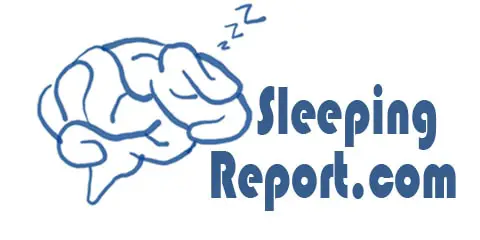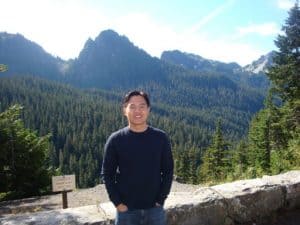You know how it works. You have an important test coming up the next day and all you can do is toss and turn all night before. You know that sleep is important, but no matter what you do, you just can’t fall asleep.
Can anyone simply turn their brain off and sleep when they are so anxious about the next day’s crucial exam? It is certainly possible. This article will highlight some tips and tricks to try to help you sleep well the night before that important test.

Tips and Tricks to Help You Sleep
Put your study materials away and go to bed!
Seriously, cramming does not work. Scientific studies prove it time and time again. Your best bet is to put everything away and prepare for falling asleep.
Give your brain the time it needs to regenerate and put all of that information away where it belongs in your memory. Honestly, you will remember more if you start winding down for sleep when you begin to feel tired than if you stay up all night trying to cram more information in.
A word of advice, if you don’t know it, you will never know it. Let your brain do its job.
Don’t eat anything heavy after 7:00pm.
You will want to be sure to eat a large, hearty meal for your evening feast. You want to fill your belly. Well, obviously, it is not useful to overeat, but eat enough that you are full and satisfied. The more protein you can fit into that meal the better it will help you for that exam.
It is also advisable to have a light snack about an hour before you lay down. It is best to eat a bit of turkey and a banana. You could throw a few cheese cubes in there too if you wanted. The reason for this incredibly specific meal, you ask? Turkey and bananas both contain an amino acid called tryptophan that helps you feel sleepy.
Experts also recommend eating about an hour before you lay down, not for sleeping, but the physical act of laying down. You need to give your digestive system time to break down the food and allow it to move into your stomach. If you lay down right after eating, you run the risk of indigestion or even vomiting.
Use the time in between eating and laying down to grab a few more minutes of studying. Don’t bog yourself down in an intense episode of cramming. Just maybe recite a few vocabulary words or look over your notes. You need to be starting to wind down now.
Drink a glass of warm milk about 30 minutes before bed.
Milk is a wonderful, miracle drink that you want to drink about half an hour before you lay down for bed. Milk is full of that amino acid, tryptophan, that we also find the turkey and banana from your snack. However, it is also chock full of Vitamin D which is a known sleep inducer.
When you were a kid, did your parents or grandparents tell you to drink warm milk before bed? Why? They knew the goodies found in the milk would help you feel sleepy and help you to fall asleep easier. Also, the reason for warming the milk is that it works with your body’s natural temperature. Studies have shown that cold drinks cause your body to work harder to warm the blood back up to its regular temperature. While making the body work harder during or after a workout, you don’t want your body to work that intensely at night when you are trying to relax.
Drink enough throughout the day.
This tip is the golden rule! Stay hydrated. Your body needs to maintain homeostasis, or in this case, an equal balance of fluid and non-fluid in your body. In simple terms, it means that if you don’t take in enough fluid during the day, your body reacts by holding tight to the fluid it does take in and as a result causes dehydration.
Why is this important? It is important for the reason that if you are dehydrated, your body cannot function at its optimum levels.
What you drink is just as important as staying hydrated in the first place. Water is best! Keep water with you and sip it while you study throughout the day. The reason for water is twofold. Drinks containing caffeine, such as coffee, soda, and some teas have dehydrating qualities. Caffeine puts fluid in your body, but it leaves your body at almost double the volume that it takes in.
The second reason to stay away from caffeinated beverages is caffeine contains a natural chemical that keeps us awake. If you absolutely need your coffee, be sure to have it before noon and nothing but water afterwards. Your body will thank you.
Turn the electronics off at least 2 hours before you are ready for bed.
This is an important tip. You truly need to turn off all of your electronic equipment before your desired bedtime. The blue light that comes from these devices knocks your natural circadian rhythm, or biological clock out of whack.
Your body’s natural rhythm is to wake up when the sun rises and then fall asleep when the sun sets. During the time of our ancestors, there were no artificial lights and especially no blue light emitted from light bulbs, televisions, phones, tablets, e-readers, or computers.
Clearly, that time is out of place in our current world, so experts suggest turning all electronic equipment off at least 2 hours before your bedtime. Yes, there are blue light filters, and advanced technology, but trust in the study results, you will sleep better if you give your eyes a break from the electronics.
Breathe.
This one sounds fairly obvious, but, listen. Lay down in your bed. Close your eyes. Clear your mind as best you can. Get all of that information from your notes and textbooks out of your mind. Take in a deep breath and let it out slowly. Concentrate on your breathing. In and out, in and out. Think of nothing else but your breathing. After a little bit your body will relax and fall asleep much easier.
Don’t study in your bedroom.
I know this one is extra difficult if you live in a dorm, a studio apartment, or any other situation where distraction is plentiful, but do your best to study outside your bedroom.
Your bedroom needs to be your sleeping sanctuary. Use it for nothing but sleep. If you work in your bedroom it is just too easy to hop out of bed and check this fact or that vocabulary word. If you work outside of your bedroom, that compulsion to rise is not as strong. Well, it may still be strong, but at least your brain won’t feel like it needs to work in your sanctuary. It will know that jumping up means leaving the room and risking not being able to fall back to sleep.
Build in time for a sweat session.
There have been several studies done about the results of exercising and better sleep. There is a debate about the best time to work out, but from my research, I have found that there is generally no difference in when you exercise, as long as you do it.
So, pick a time in your day and put your books away for half an hour or an hour and work out. Work on making your heart pump and give your lungs a workout. Study results prove that you will sleep better if you exercise. Now, the more regularly you work out the better the sleep benefit is, but at least on this day, the day before your exam, sweat!
Stay away from alcohol.
Have you ever heard from someone that alcohol kills brain cells? Well, there is truth in that statement. Your brain and alcohol do not mix, especially if you need to be at your best the next day.
Remember earlier when I said that your brain stores memories and puts everything you learned in the right order while you sleep? Well, your brain on alcohol is much like a hive of honeybees when they experience smoke. They become drowsy and a little out of it.
So, if alcohol causes drowsiness, why shouldn’t you drink any? Well, it interferes with the brain’s ability to form the memories you are working so diligently to keep. How much alcohol you consume determines just how impaired your brain becomes, so obviously, don’t drink to excess. But remember, just one beer affects your brain function.
Do not take sleeping pills!!!
Sleeping pills should always, always, always be the last resort. The side effects of sleeping pills are incredibly detrimental to the benefits of a refreshing night’s sleep.
First, they can take hours to work, which means that you feel tired from the pill after taking it, but not enough to fall asleep yet, so it would be the same as cramming or drinking alcohol. You won’t take in that new information.
Second, when you do finally fall asleep there is more of a risk of waking up sleepier than you were before you went to bed. A sleeping pill works against your body’s natural sleep rhythm. A natural sleep rhythm allows for periods of deep sleep interspersed with periods of REM sleep. Sleeping pills have the tendency to keep the pill taker in a deep sleep state for too long and not enough REM sleep.
What this means is that the longer period of deep sleep means it is more difficult to wake up in the morning, and generally, when you do wake up, you are much groggier than you would be if you had stayed up all night.
Bonus Tips For the Morning of Your Exam!

Eat a light breakfast.
You don’t want something too filling as it will just work against you and you might become drowsy. After your exam, you can eat a heavy meal, but for breakfast, keep it light and airy.
Take a nap.
No scoffing allowed. You followed all the tips and worked for that sleep, but it’s true. Studies have shown that a quick nap of 30 minutes to an hour will help your cognition at the time of your exam. Just a quick little refresher is enough.
Why is it Important to Sleep Well the Night Before an Exam?

You will wake up more refreshed and ready to face the day.
Waking up after having had a refreshing night’s sleep is the key to making the rest of this list happen. Consequently, this is why you should always try for 7-9 hours of sleep every night, especially the night before an exam. It is true that some people need more or less sleep than this, but the 7-9 hours is a respectable estimate to keep in mind.
Don’t hit that snooze button! Studies show that if you hit the snooze button repeatedly and doze during those in-between minutes, you actually lose more quality sleep throughout the week than if you set the alarm for the time you actually want to leave the bed and don’t hit snooze. Not to mention, the disturbing noise from the alarm does nothing but interrupt your sleep and who wants to hear that three, four, or even five times every morning?
Sleeping enough the night before your exam renders it easier to think and concentrate during the day.
Your brain is an amazing organ. While you sleep, it takes all of the information that you learned the day before and consolidates it with all of the information that already lives in your brain. Sleep enough and your brain has its best chance of merging this information and the better you will remember it.
This is why cramming doesn’t work. The loss of sleep you experience while you are cramming means less time for your brain to do its magic. Do yourself a favor and sleep instead.
When you sleep enough at night your body tends to reward you with a bright outlook on the day, thus improving your mood.
Mood is one of those fickle features of your psyche that depends greatly on how much refreshing sleep you take in at night, but at the same time how much refreshing sleep you receive also depends on your mood.
What this means is that if you are anxious and stressed from cramming for your test, you won’t sleep as well as you would if you were calm and serene before you went to sleep. However, the opposite is also true. If you do fall asleep calm and relaxed, you will tend to wake up more refreshed and in a better mood.
This article is owned by Sleeping Report and was first published on August 7, 2019
A great night’s sleep will also help you to feel more alert the morning of your test.
Being more alert is one of the best benefits of sleeping well. Not only are you more aware of your surroundings, you are better able to concentrate and focus on the task at hand.
A way to boost this alertness after a decent night’s sleep is to take a nice shower. You don’t want a long, hot shower. You want a quick, cool shower that will help wake you up even more than just sleeping well.
Waking up with more energy is another wonderful benefit of sleeping well.
The reason you feel more energized after an effective night’s sleep is that your body does all of its healing while you sleep. Your immune system gets a boost, your muscles repair themselves with proteins, and your body temperature and blood flow even out after a long day of vigorous work to keep you doing all you want to do during the day.
Take some of that extra energy and take a quick walk around the block in the sunshine to boost your energy level even more the next morning. Moreover, this is also a great alertness booster. Try to spend as much time as possible in the sunshine during the day.
Conclusion
Okay, here you have it. This is your guide to that great night’s sleep you need. You have the tools. It is now up to you to put them to use. You can do it and you can crush this exam!
SleepingReport.com copyright article was updated on ..
Just remember, cramming does not work and sleeping well is the only answer you need. Best of luck!

